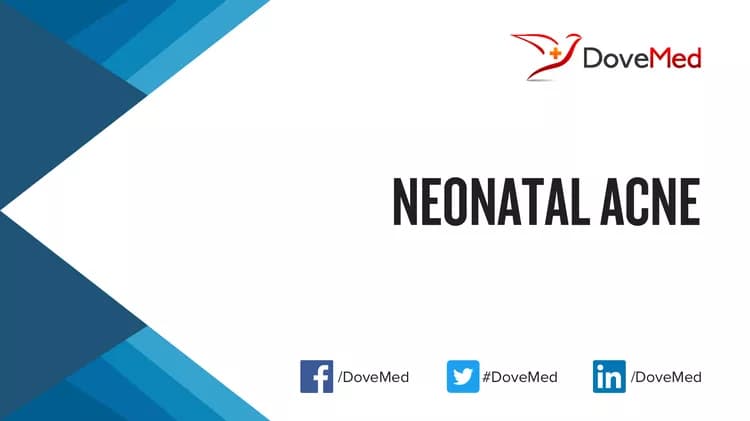What are the other Names for this Condition? (Also known as/Synonyms)
- Newborn Acne
What is Neonatal Acne? (Definition/Background Information)
- Neonatal Acne is a common skin condition that affects newborns. It manifests as small red or white bumps on the baby's face, typically appearing within the first few weeks after birth
- While it can be distressing for parents, neonatal acne is generally harmless and tends to resolve on its own
Who gets Neonatal Acne? (Age and Sex Distribution)
- Neonatal Acne primarily affects newborns, usually appearing within the first two to four weeks of life
- It can affect both male and female infants
What are the Risk Factors for Neonatal Acne? (Predisposing Factors)
- There are no specific known risk factors for Neonatal Acne
- The condition may be influenced by hormonal changes that occur in the baby's body during gestation
It is important to note that having a risk factor does not mean that one will get the condition. A risk factor increases one’s chances of getting a condition compared to an individual without the risk factors. Some risk factors are more important than others.
Also, not having a risk factor does not mean that an individual will not get the condition. It is always important to discuss the effect of risk factors with your healthcare provider.
What are the Causes of Neonatal Acne? (Etiology)
- Neonatal Acne is believed to be related to the transfer of maternal androgenic hormones (testosterone and DHEA sulfate) to the baby during pregnancy
- These hormones can stimulate the baby's sebaceous glands, leading to the development of acne
What are the Signs and Symptoms of Neonatal Acne?
The primary symptom of Neonatal Acne is the appearance of small red or white bumps on the baby's face, especially on the cheeks, nose, and forehead. These bumps may be surrounded by reddened skin and can sometimes be accompanied by mild inflammation. Both open and closed comedones can be seen.
How is Neonatal Acne Diagnosed?
- Neonatal Acne is typically diagnosed based on its characteristic appearance and the absence of other concerning symptoms
- A healthcare provider may perform a physical examination to rule out other skin conditions
Many clinical conditions may have similar signs and symptoms. Your healthcare provider may perform additional tests to rule out other clinical conditions to arrive at a definitive diagnosis.
What are the possible Complications of Neonatal Acne?
Neonatal Acne is generally a benign condition and does not lead to serious complications. It usually resolves on its own without leaving scars.
How is Neonatal Acne Treated?
Usually, treatment for Neonatal Acne is not necessary, as the condition tends to resolve naturally within a few weeks to months.
- Gentle cleansing of the baby's face with plain water and avoiding harsh products can help prevent irritation
- If the acne is severe or persists, a pediatrician may recommend mild topical treatments or provide guidance on managing the condition
How can Neonatal Acne be Prevented?
- Since Neonatal Acne is related to normal intrauterine hormonal changes, it cannot be prevented
- However, gently keeping the baby's face clean and avoiding any harsh skincare products can help manage the condition
What is the Prognosis of Neonatal Acne? (Outcomes/Resolutions)
- The prognosis for Neonatal Acne is typically excellent
- In most cases, the condition will resolve on its own without any lasting effects. As the baby's hormone levels stabilize, the acne will gradually fade away
Additional and Relevant Useful Information for Neonatal Acne:
- There is no evidence to prove that oily foods and chocolate-based products have an influence on Acne
- Cleaning the skin too hard with strong chemicals or soaps may aggravate the skin condition
- The presence of dirt on the body is not a causative factor for acne, but it helps to be clean and hygienic
Related Articles
Test Your Knowledge
Asked by users
Related Centers
Related Specialties
Related Physicians
Related Procedures
Related Resources
Join DoveHubs
and connect with fellow professionals



0 Comments
Please log in to post a comment.